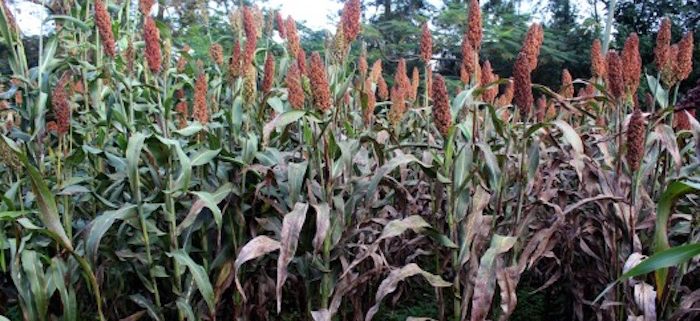Broad spectrum resistance to fungal pathogens in sorghum is conferred by an immune receptor gene
Background: Sorghum, the fifth most widely grown cereal crop globally, provides food security for millions of people. The fungal disease sorghum anthracnose is the most devastating disease of this crop, with yield losses ranging from 50 to 86%. Genetic resistance is the most economically sustainable and often the only feasible disease control strategy. We aimed to identify anthracnose-resistant germplasm and the underlying genes to dissect mechanisms of resistance and develop resistant varieties.
Question: Certain variants, or genotypes, of sorghum are naturally resistant to anthracnose. Effective exploitation of these genetic resources requires an understanding of the identity of the genes and their functions. This research sought to find and characterize a gene that provides resistance to this devastating pathogen.
Findings: The resistance gene ANTHRACNOSE RESISTANCE GENES1 (ARG1) is responsible for robust anthracnose resistance in sorghum. Surprisingly, unlike most other resistance genes of its class, ARG1 provides resistance to many different strains of the anthracnose fungus and several other pathogens as well. Remarkably, expression of this gene appears to require the insertion of a tiny mobile stretch of DNA called a transposon, which is lacking in the susceptible genotypes. In addition, ARG1 is embedded in a second gene whose expression is also driven by transposon insertion that appears to interfere with the expression of ARG1. This mode of regulation, called anti-sense interference, suggests previously unexplored layers of regulation of resistance genes in sorghum and perhaps other crops as well.
Next steps: The identification of ARG1 will make it possible to rapidly introgress, or introduce, this gene into farmer preferred and adapted cultivars. Additionally, a deep understanding of the regulation and function of ARG1 may make it possible to genetically engineer sorghum, or even other crops, to be resistant to a wide variety of pathogens.
Sanghun Lee, Fuyou Fu, Chao-Jan Liao, Demeke B. Mewa, Adedayo Adeyanju, Gebisa Ejeta, Damon Lisch, and Tesfaye Mengiste (2022). Broad spectrum fungal resistance in sorghum is conferred through the complex regulation of an immune receptor gene embedded in a natural antisense transcript. https://doi.org/10.1093/plcell/koab305



